Retro Replay Review
Gameplay
_Access_ centers its gameplay around a streamlined pseudohacking interface that instantly immerses you in the role of an eager gamer bent on downloading a seemingly lost adventure game demo. Rather than relying on flashy visuals or muscle-bound action, the game invites you to type commands, probe remote servers via telnet, and deploy a suite of hacking tools to uncover hidden network pathways. Each node you crack or firewall you bypass reinforces the illusion that you’re truly poking around in cyberspace, making every success feel earned and authentically techy.
(HEY YOU!! We hope you enjoy! We try not to run ads. So basically, this is a very expensive hobby running this site. Please consider joining us for updates, forums, and more. Network w/ us to make some cash or friends while retro gaming, and you can win some free retro games for posting. Okay, carry on 👍)
The puzzle design strikes a clever balance between logical deduction and real-time pressure. Some tasks, such as decoding password hashes or tracing IP hops, reward patience and methodical thinking, while certain timed sequences force you to improvise under looming deadlines. This interplay of calm analysis and adrenaline-fueled bursts of activity keeps the game’s pacing dynamic, ensuring you don’t get lulled into repetitive terminal tedium. The difficulty curve is gentle at first but gradually scales to challenge seasoned puzzle-solvers without ever feeling unfair.
Adding a richer dimension to the core hacking loop are the built-in IRC channels, where you can solicit hints from cheeky bots and caricatured netizens. These chat rooms not only serve as a gameplay aid but also deliver much of the game’s humor and world-building. Whether you’re trading quips with a bot impersonating the developer Akatosh or watching rival hackers bicker over code snippets, every interaction feels purposeful and ripe with playful commentary on hacker culture.
Graphics
At first glance, _Access_ opts for a minimalist, text-focused aesthetic rather than high-fidelity 3D models. The interface is largely reminiscent of classic terminal windows, complete with green phosphor text on a dark background. Occasionally, the game interpolates asset files from Uplink: Hacker Elite, lending certain graphics—like network maps and schematic overlays—a familiar, retro-tech vibe that fans of older hacking sims will instantly recognize.
Borrowing assets from Uplink doesn’t feel like lazy recycling; instead, it injects nostalgic charm and underlines the game’s tongue-in-cheek homage to the genre. While you won’t find blazing particle effects or cinematic cutscenes, the occasional diagram or HUD element borrowed from Uplink fits seamlessly with the rest of the UI. It all coalesces into a cohesive visual package that supports immersion without distracting from the puzzle mechanics.
Beyond aesthetic appeal, the UI design is remarkably user-friendly. Commands are color-coded for clarity, and log panels can be resized or filtered to spotlight pertinent lines of code. Even newcomers unfamiliar with command-line tools will appreciate the well-structured feedback and contextual help built directly into the terminal. This emphasis on legibility and clean presentation ensures that the game’s graphic choices always serve gameplay over spectacle.
Story
At its narrative heart, _Access_ frames every hacking excursion as a quest to retrieve an elusive adventure game demo that was “lost” in cyberspace. This meta-plot resonates with anyone who’s ever chased down a rare downloadable title or twiddled their thumbs while awaiting a patch. By positioning the player as a gamer-turned-provisional hacker, the game taps into a universal yearning: the desire to unlock digital treasures that are just out of reach.
The story unfolds primarily through your interactions in various IRC channels, where chat logs and bot responses reveal tidbits of backstory, developer in-jokes, and easter eggs. Caricatures of real-world hackers and even the game’s own designer, Akatosh, wander in and out of conversations, poking fun at programming clichés and the quirks of net culture. This ensemble cast breathes life into what could otherwise be a sterile series of puzzles, giving every mission a sly narrative payoff.
Despite its comedic leanings, the script can occasionally surprise with genuine moments of camaraderie and reflection on what it means to be part of an online community. By the time you decode the final encryption or crack the last secure server, you feel less like a lone hacker and more like a welcomed member of a ragtag digital fraternity. That unexpected emotional undercurrent elevates _Access_ from simple parody to something a bit more memorable.
Overall Experience
_Access_ will most appeal to players with a taste for cerebral challenges and a nostalgic soft spot for old-school hacking sims. If you’ve ever fiddled with SSH, typed “ping –t,” or just enjoyed the mental gymnastics of logic puzzles, this game wraps those pleasures in a witty package that never takes itself too seriously. Its short playtime—typically around six to eight hours—feels just right for a tightly woven experience without filler.
That said, the game’s reliance on text and command-line interfaces may deter those craving visual spectacle or more conventional action. The learning curve can be a bit steep for absolute beginners, though the in-terminal help and friendly IRC denizens quickly remedy most confusions. For players seeking a more guided experience, the hardcore hacker aesthetic and dry humor may occasionally obscure the path forward.
Ultimately, _Access_ delivers an unforgettable blend of brain-teasing puzzles, sly writing, and retro-tech style. Whether you’re craving a nostalgic nod to pioneering hacking sims or simply want an offbeat adventure that tests your wits, this little demo downloader has a lot more charm—and challenge—than you’d expect. For anyone intrigued by the idea of playing Sherlock Holmes with a keyboard and a blinking cursor, _Access_ is an easy recommendation.
 Retro Replay Retro Replay gaming reviews, news, emulation, geek stuff and more!
Retro Replay Retro Replay gaming reviews, news, emulation, geek stuff and more!
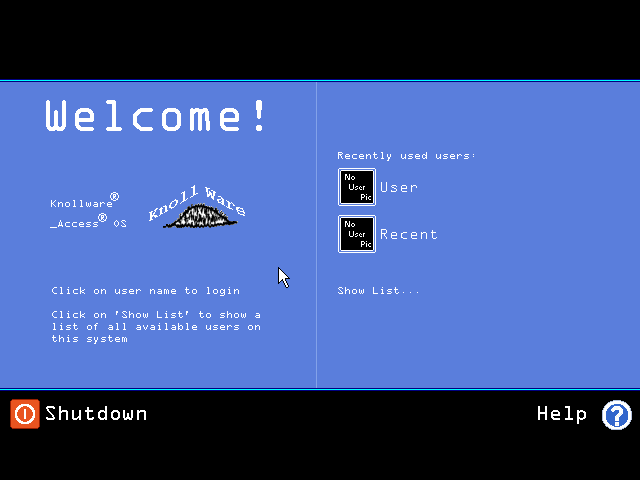
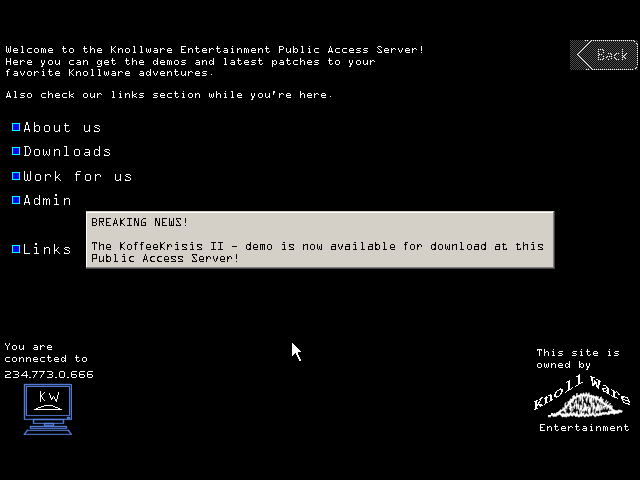
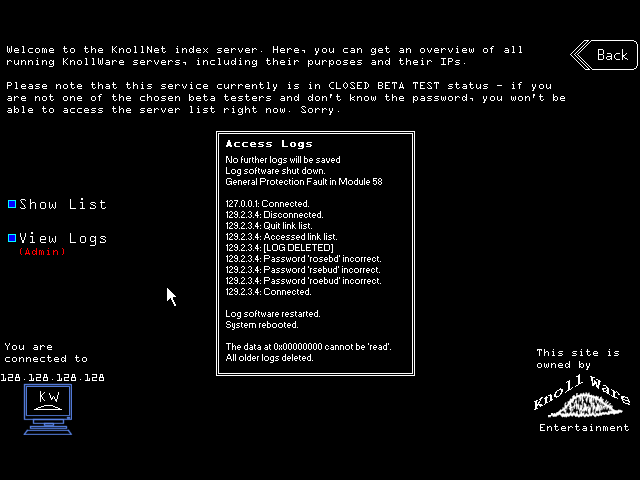
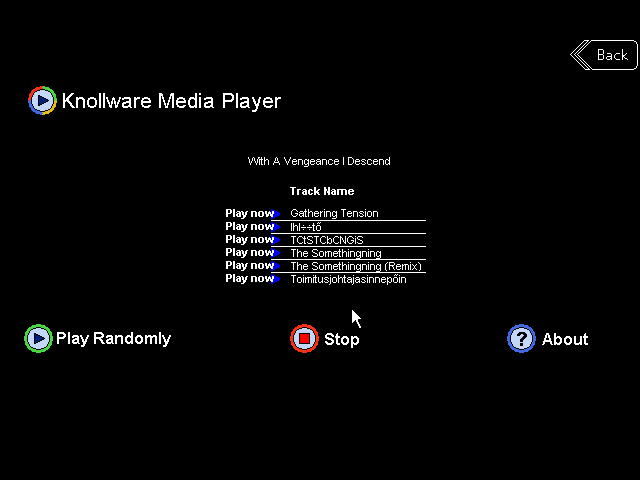
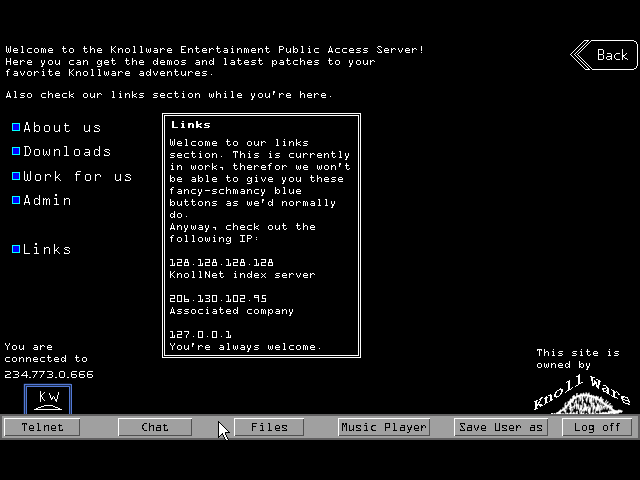



Reviews
There are no reviews yet.